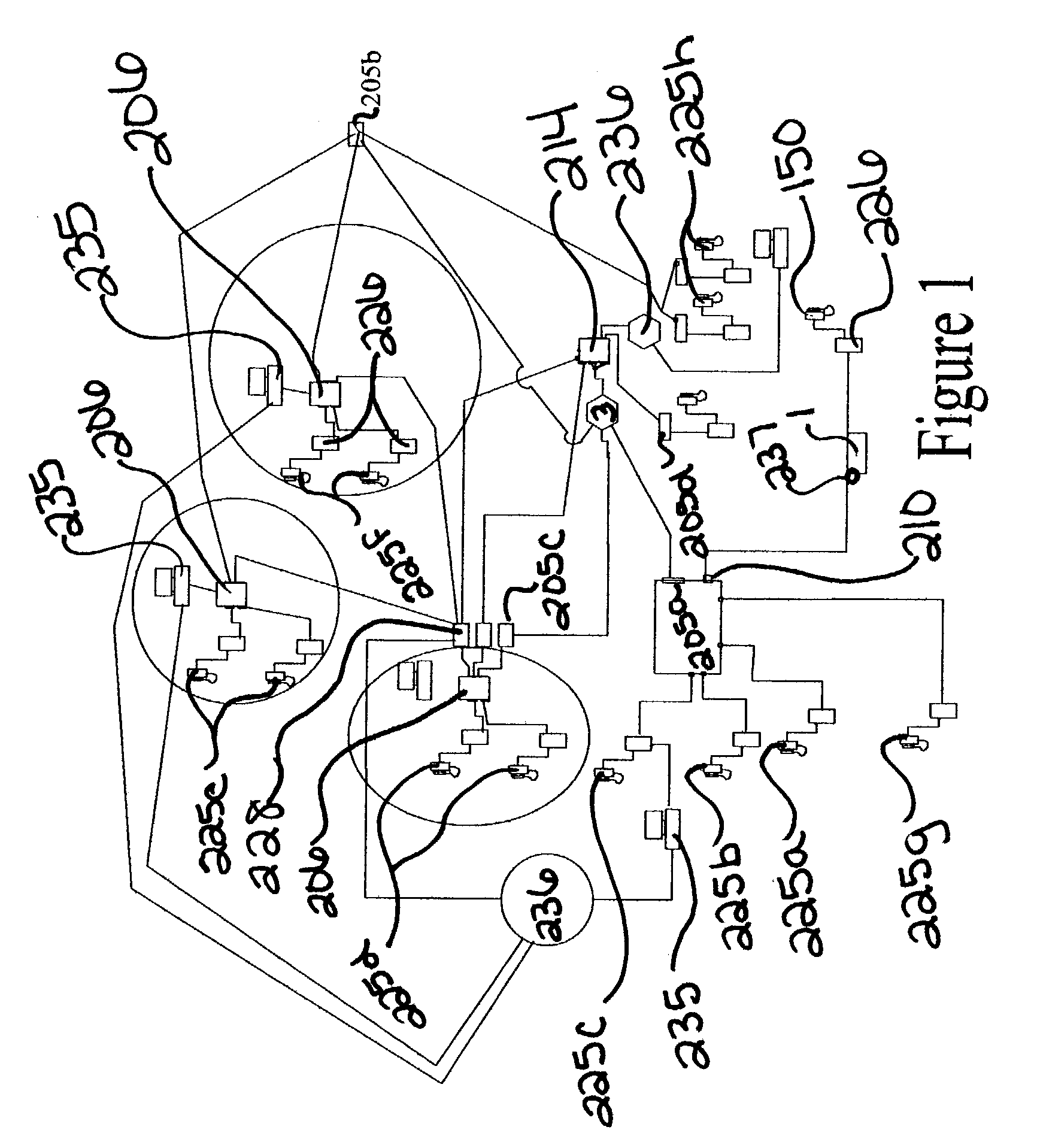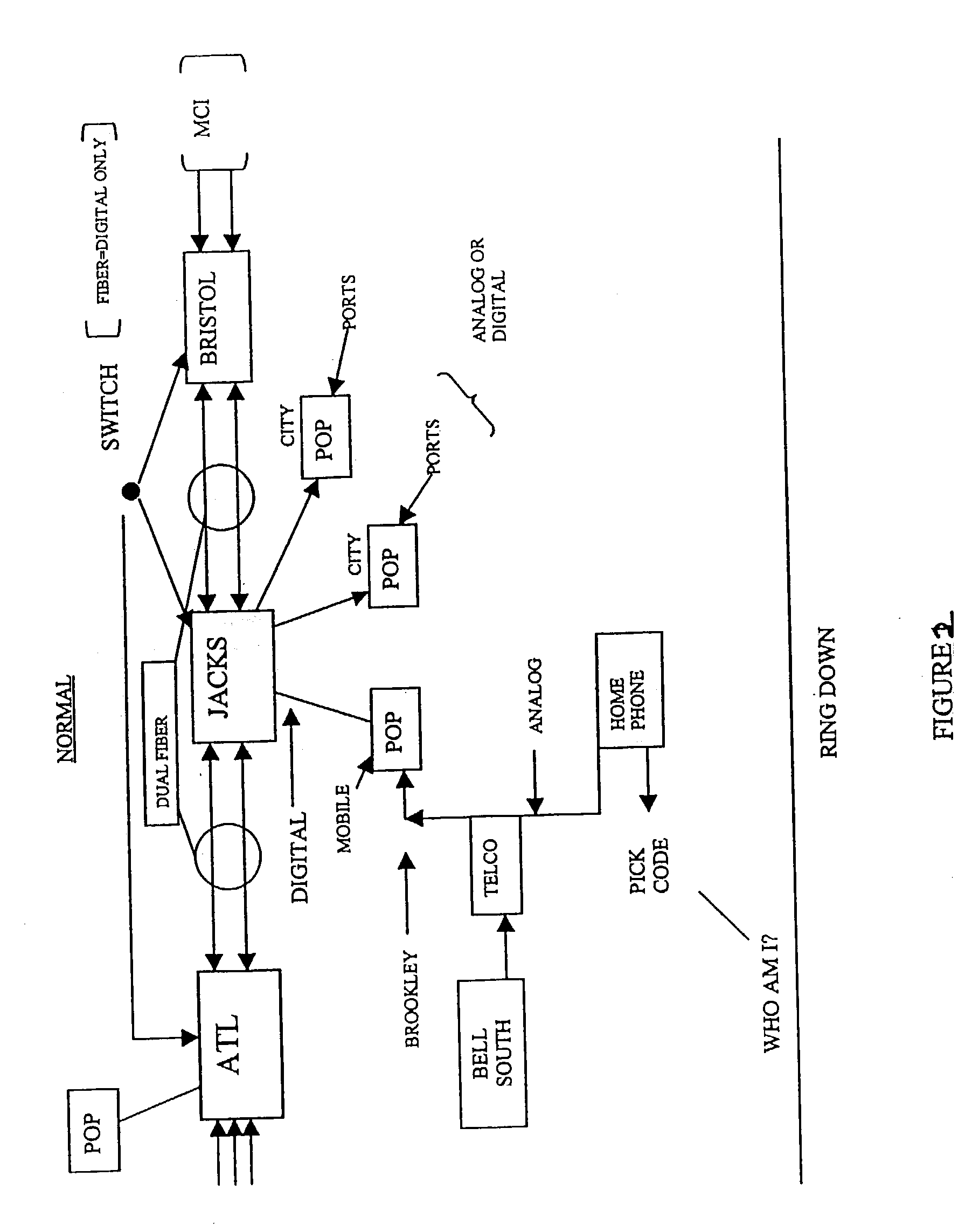Telephone port allocation method
a technology of telephone port allocation and allocation method, which is applied in the direction of telephonic communication, electrical equipment, interconnection arrangements, etc., can solve the problem of system inefficient port control
- Summary
- Abstract
- Description
- Claims
- Application Information
AI Technical Summary
Benefits of technology
Problems solved by technology
Method used
Image
Examples
Embodiment Construction
of the Invention
[0015] The present system recognizes different types of protocols and identifies the port by (1) accepting the data portion of the call through a wide area network to a remote network processor or by running the data portion (DNIS or ANI) of the phone call through the phone call switching network with each data portion being associated with a given protocol which is received by the remote network processor and compared to several different database collections by a comparison program until the program "recognizes" the protocol and then sets up port according to the identification of the protocol. This requires that a portion of the call is set up using a common protocol, the client maybe forced into the generic protocol.
[0016] Server software controls which service talks preferentially over the other and processes the information in the order received.
[0017] The invention is a method of allocating calls within a plurality of restricted port capacity systems to maximi...
PUM
 Login to View More
Login to View More Abstract
Description
Claims
Application Information
 Login to View More
Login to View More - R&D
- Intellectual Property
- Life Sciences
- Materials
- Tech Scout
- Unparalleled Data Quality
- Higher Quality Content
- 60% Fewer Hallucinations
Browse by: Latest US Patents, China's latest patents, Technical Efficacy Thesaurus, Application Domain, Technology Topic, Popular Technical Reports.
© 2025 PatSnap. All rights reserved.Legal|Privacy policy|Modern Slavery Act Transparency Statement|Sitemap|About US| Contact US: help@patsnap.com



